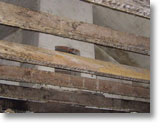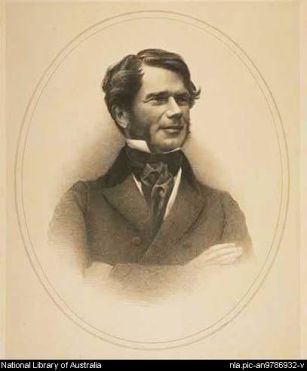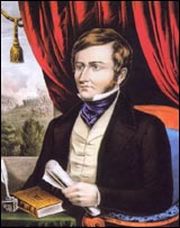|
|
|


William Smith O'BRIEN(1803-1864) William Smith O'Brien William Smith O'Brien, Irish Patriot and MP, was born in Dromoland, County Clare on October 17th, 1803. He was the second son of Sir Edward O'Brien, fourth baronet of Dromoland, a descendant of Brian Boru whose immediate family background was Protestant Unionist. His mother was Charlotte, nee Smith, whose father owned a property called Cahermoyle in County Limerick. William inherited it and adopted the additional surname of Smith, thereafter he is known as William Smith O'Brien.  Cahermoyle, Limerick He was educated at Harrow and Trinity Colleges, as well as at Cambridge where he studied law before becoming a Tory MP for Ennis, County Clare in 1828. William Smith O'Brien held his seat in Parliament until 1831 and was re-elected for Limerick in 1835.  William Smith O'Brien Though he was destitute of oratorical gifts, his arraignment of the English government of Ireland secured him enthusiastic attachment as a popular leader. In 1843 he joined the Repeal Association. In July 1846 the " Young Ireland" party, with William Smith O'Brien and Gavan Duffy at their head, left the Repeal Association, and in the beginning of 1847 established the Irish Confederation which advocated physical force to repeal the Act of Union.. In May 1848 he was arrested at Thurles and tried at Dublin for sedition, but the jury could not agree on his guilt. In the following July he established a war directory. William Smith O'Brien partook in the Young Ireland Rising among the peasantry of Ballingarry, County Tipperary but although he was at first joined by a large following the movement wanted cohesion, and the vacillating crowd dispersed as soon as news reached them of the approach of the dragoons. Although he evaded arrest until mid-August, 1848, he arrested, tried and imprisoned in Clonmel Gaol.  Arrest of William Smith O'Brien He was tried for High Treason and sentenced to hanging, drawing and quartering but this sentence was commuted to transportation to Tasmania (Van Diemen's Land), after a Petition for Clemency was launched to prevent his execution.  Petition of Clemency Being part of the educated aristocracy and a former member of the British Parliament he was not treated as an ordinary convict, but more as a political exile. He first landed at Darlington, Maria Island in 1849. From 1842 to 1850 Maria Island was a probation station accepting political prisoners from Ireland. He was for a time confined to cramped quarters in a loft.  Loft on Maria Island, Tasmania It was so small he could not even stand upright in it. After being processed on Maria Island, he was sent to notorious Port Arthur for a few months. After that he spent his time at Glen Derwent, where he rented a room with adjoining lounge for £6 per month. Although still a convict and in exile, he was permitted by the authorities to roam freely in the district.  Glen Derwent Cottage, Tasmania In February 1854 he received his liberty on condition of never revisiting the United Kingdom; and in May 1856 he obtained a full pardon, and returned to Ireland. He travelled to Belgium and America before returning to Ireland where he published Principles of Government or Meditations in Exile (1856). He died at Bangor, in north Wales, on the 18th of June, 1864. He had five sons and two daughters. His eldest brother, Lucius, became I3th Baron Inchiquin in 1855, as heir male to the 3rd marquis of Thomond, and at whose death in 1855 the marquisate of Thomond and the earldom of Inchiquin became extinct. He spent seventeen years of his life fighting for Irish interests in the British House of Commons. He was a representative figure of public opinion in Ireland in the first half of the nineteenth century, although overshadowed by Daniel O'Connell, and is an excellent role model for an all-Ireland consensus in our own day.  W. S. O'Brien He read and wrote in several languages, Latin and Greek as well as French and German. In later life he studied Irish and the poet Brian O'Looney became his "court poet". His son Edward supported the Union with England. A daughter, Charlotte Grace, devoted her life to the care of Irish women emigrants in America. William Smith O'Brien is commemorated by a statue in O'Connell St. Dublin and by the William Smith O'Brien cottage at Port Arthur, Tasmania. Australian admirers presented him with a magnificent vase weighing 125 oz. of nine carat gold. It is now on view in the National Museum of Ireland at Collins Barracks, Dublin. Inspired by liberalism and romantic nationalism, the Young Irelanders sprung up as a revolutionary movement in the mid 19th century. The Young Irelanders — whose heroes were Wolfe Tone and the men of 1798 — were so called because of their differing ideology from Old Ireland, as the O’Connellites (referring to Daniel O’Connell) were called. The Young Ireland party broke from the powerful Repeal Association in 1846.  William S. O'Brien
|
